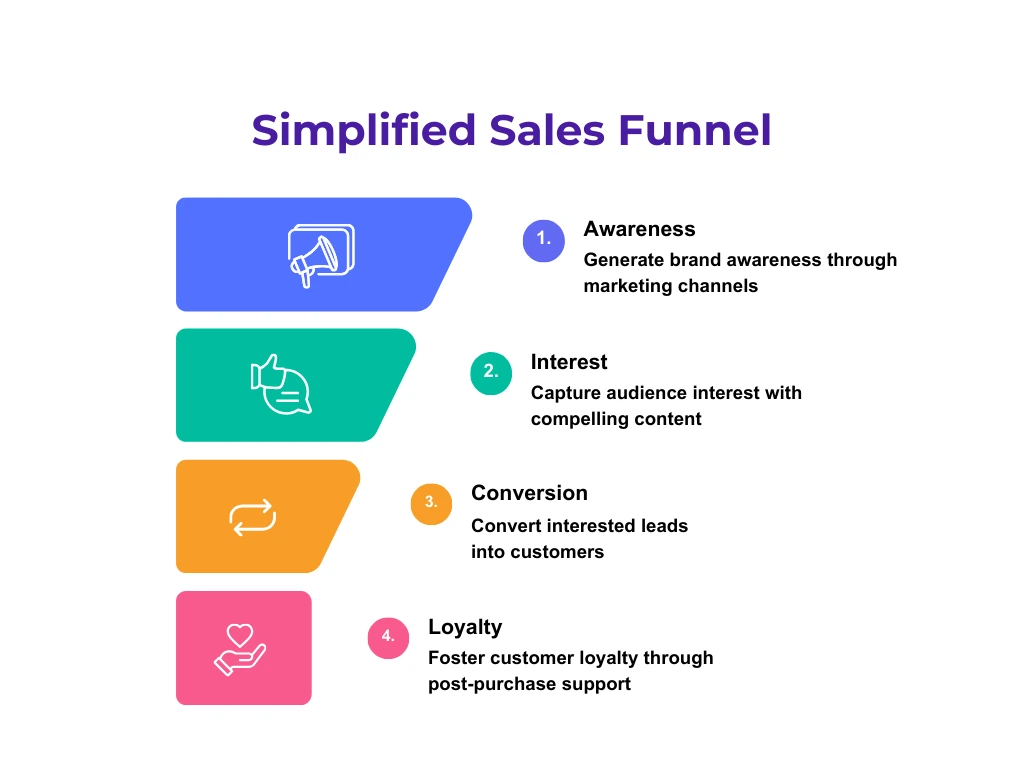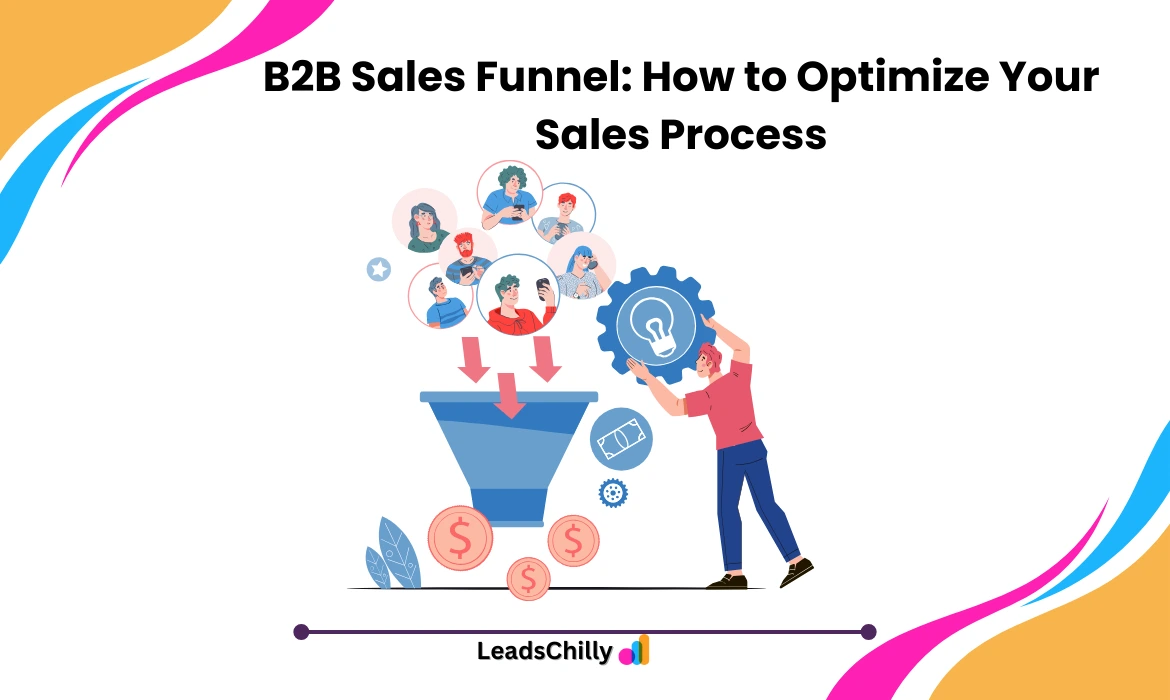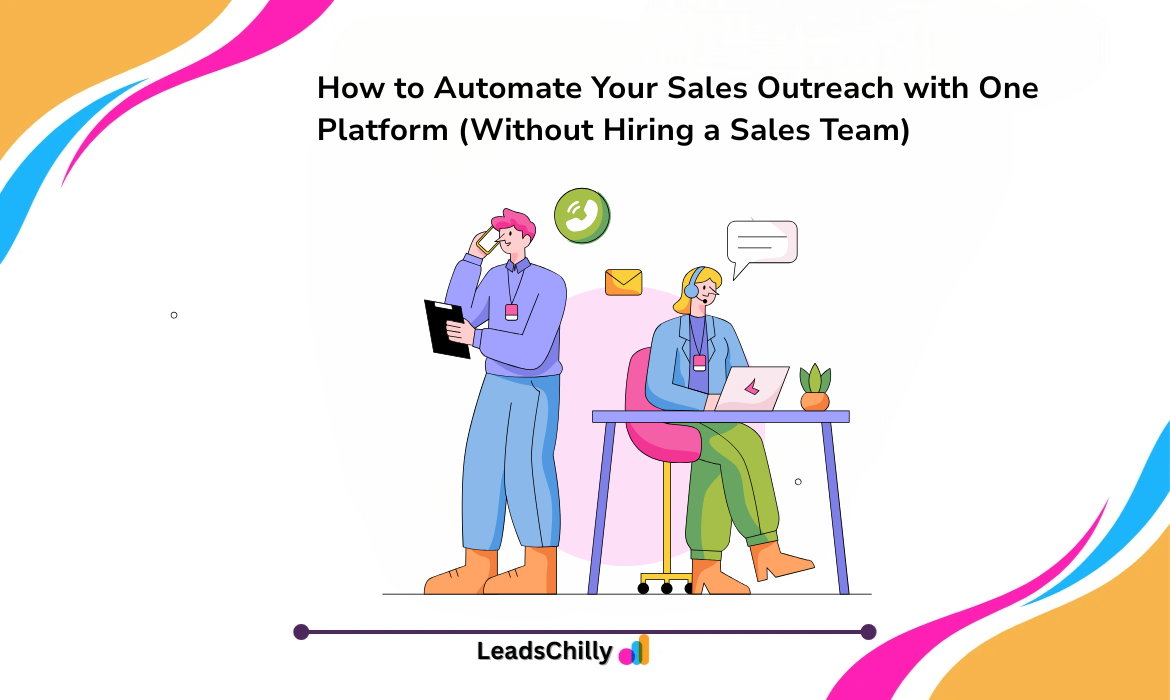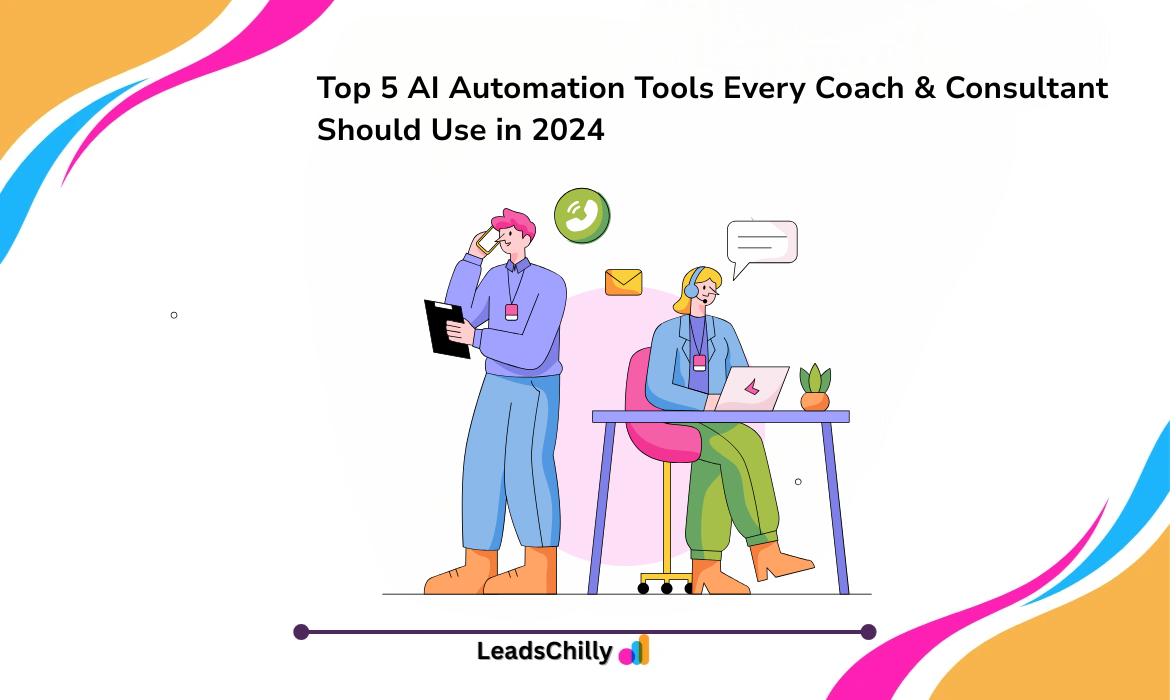A B2B sales funnel is a systematic approach that guides potential business clients from the first interaction with your brand to the final decision of making a purchase. This journey consists of multiple stages where businesses nurture prospects, address their concerns, and build trust, ultimately driving sales conversions.
According to HubSpot, “68% of B2B organizations have implemented a sales funnel to track leads and improve their chances of conversion.” This data underscores the importance of having a structured sales process in place, as it allows businesses to effectively manage leads, monitor engagement, and optimize strategies at each stage.
LeadsChilly is an automation tool that helps businesses build and optimize their B2B sales funnel. From awareness to closing deals, our platform helps you guide leads smoothly through each stage. Start your 14-day free trial and experience how LeadsChilly can boost your conversions.
In this blog, we will discuss the B2B sales funnel, its importance in driving conversions, and how it differs from B2C funnels.
How Does a B2B Sales Funnel Work?
A B2B sales funnel works by systematically guiding prospects through different stages, with each stage requiring a distinct marketing or sales approach to engage and convert them.
Key Steps in a B2B Sales Funnel:
- Awareness: Prospects learn about your brand through content marketing, ads, or social media.
- Interest: They engage with your content or inquire further about your services.
- Consideration: Prospects actively evaluate your offerings against competitors.
- Decision: The final purchase decision is made, often involving multiple decision-makers.

Why B2B Sales Funnels Are Important for Businesses
A B2B sales funnel is essential because it helps businesses:
- Nurture Leads Effectively: Tailor your marketing approach to prospects based on where they are in the buying process.
- Increase Conversion Rates: A well-managed funnel ensures that prospects are engaged and move toward the decision-making stage.
- Measure Success: Sales funnels help track key performance indicators (KPIs) like conversion rates, lead velocity, and ROI.
Why Should You Focus on Your Sales Funnel?
Without a structured funnel, your business may miss key opportunities to convert leads into customers. A well-optimized funnel reduces friction in the buying process, ensuring a smooth journey for your prospects.
B2B vs. B2C Sales Funnel: Key Differences
Although both B2B and B2C sales funnels share common elements, they differ significantly in terms of complexity, decision-making processes, and customer behavior.
Key Differences:
- Longer Decision-Making Process: B2B purchases often take longer due to higher value and the involvement of multiple stakeholders.
- Personalized Approach: B2B funnels require a more personalized, relationship-driven strategy, while B2C funnels are often transactional.
- Focus on Rational Decision-Making: B2B decisions are based on logic, ROI, and data, whereas B2C decisions are more emotion-driven.
Stages of the B2B Sales Funnel
Each stage of the B2B sales funnel has a specific role in guiding potential clients from awareness to final purchase and beyond. Understanding these stages is critical for optimizing lead conversion.
Awareness Stage: Building Brand Recognition
At this stage, potential leads become aware of your brand through ads, blog posts, webinars, or social media. The goal is to build recognition and create a positive first impression.
Interest Stage: Nurturing Potential Leads
After awareness, leads express interest in your products or services. At this point, nurturing is key through personalized email campaigns, webinars, or product demos.
Consideration Stage: Educating and Offering Solutions
During this stage, potential clients actively compare your offering with competitors. Provide in-depth educational content like case studies, product sheets, or client testimonials to show how your solution addresses their specific needs.
Decision Stage: Closing Deals with Confidence
Now that your prospect is ready to make a decision, it’s essential to close the deal by providing clear pricing, addressing any final objections, and offering a limited-time offer or demo to incentivize a decision.
Retention Stage: Building Long-Term Client Relationships
Once a sale is made, your job is not done. The retention stage focuses on nurturing the customer relationship to encourage future business. Use customer support, feedback loops, and loyalty programs to build long-term value.
How to Create a B2B Sales Funnel from Scratch
Creating a B2B sales funnel requires planning and strategic execution. Follow these steps to build an effective funnel from scratch:
Steps to Create a B2B Sales Funnel:
- Define Your Target Audience: Research your ideal customers and create buyer personas.
- Develop Engaging Content: Create valuable content tailored to each stage of the funnel to nurture leads.
- Build Automated Workflows: Use automation tools to follow up with leads at the right time, helping them move through the funnel.
- Monitor and Optimize: Continuously monitor your funnel’s performance and optimize based on data and feedback.
With its robust automation tools, LeadsChilly’s platform makes it easy to build your B2B sales funnel from scratch. Start your free trial today and grow your business.
Optimizing the B2B Sales Funnel for Conversions
Conversion optimization is the process of fine-tuning each funnel stage to improve lead engagement and increase sales.
Conversion Optimization at Each Stage:
- Awareness: Use targeted ads and SEO to drive more qualified traffic to your site.
- Interest: Create personalized follow-ups through email marketing and automated workflows.
- Consideration: Offer value-driven content like case studies and comparison guides to persuade prospects.
- Decision: Provide clear CTAs, free trials, and product demos to close the deal.
Using Data and Analytics to Improve Funnel Performance
Tracking funnel metrics like conversion rates and lead-to-sale velocity helps identify areas for improvement. Analyzing this data helps you understand which strategies are working and which need adjustment.
A/B Testing Strategies for Funnel Optimization
Use A/B testing to try out different CTAs, landing page designs, and email subject lines to determine what drives the best results. A/B testing helps refine your funnel and boosts conversions.
Common B2B Sales Funnel Mistakes and How to Avoid Them
Some common pitfalls include poor lead segmentation, not nurturing leads, and failing to align sales and marketing efforts. Avoid these by creating clear workflows and ensuring constant communication between teams.
Conclusion
A well-optimized B2B sales funnel is the backbone of successful business growth. From generating brand awareness to closing deals and retaining clients, each stage of the funnel requires a tailored approach and constant refinement. Automation can significantly streamline this process.
LeadsChilly offers all the tools you need to build and optimize your sales funnel, from start to finish. With our 14-day free trial, you can automate lead nurturing, track progress, and maximize conversions.
Frequently Asked Questions
A B2B sales funnel is a framework that businesses use to guide potential clients through the buying process, from awareness to decision-making.
Conversion times vary, but B2B funnels tend to take longer due to higher-value purchases and more stakeholders involved in decision-making.
Essential tools include CRM software, email marketing platforms, and analytics tools. LeadsChilly offers all-in-one solutions to build and optimize your funnel.
The B2B sales funnel is typically longer and involves multiple decision-makers, while B2C funnels are usually quicker and more emotion-driven.
To optimize your funnel, use data-driven insights, personalized content, and A/B testing to refine your strategies. LeadsChilly’s automation tools can streamline this process.




Comments are closed.